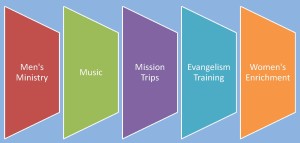by Carol
When is a fabulous event a — well, maybe not bad, but — less than 100% good thing?
History
I knew a church that had an annual outreach event every year. All of the children’s games, signs, food-prep stuff, etc., etc., were brought out of storage when the time rolled around. Every church member (it seemed) had a favorite place to serve. Even the families in the neighborhood knew when to expect the flyers and when to show up in droves.
Now, you are probably thinking that it had turned into a bad thing because everyone was in a rut. And to be fair, it was not working as a true outreach event anymore. But that wasn’t what turned it into a problem.
The New Kid
The problem started when someone new in the church — who had no awareness of the previous history — was asked to do something very different with the event. Result? A fairly successful event because the members tried their best to stay in their rut.
The Staff Kid
The next year, a staff member headed up a moderately successful event.
The Newest New Kid
And then came the “fabulous” year.
A new person in the church — who had no awareness of the previous history — was asked to lead. She poured her every waking moment and her extended family into the event. I repeat: It was fabulous.
But…
The next year, she didn’t want to lead it again. (Can you blame her?) And the staff member didn’t want to lead it again. And the earlier recruit didn’t want to get burned again. And the original games and signs and food-prep stuff had long since gone in a dumpster. And the church members no longer had their favorite places to serve. And….
And Finally
No one wanted to try to follow last year’s “fabulous” act.
Lessons to Learn
There are quite a few lessons here:
- It’s hard to change a well-entrenched ministry. It has to be done with careful planning.
- It’s not fair to throw a change like that into the lap of a new volunteer.
- The dance between volunteer leaders and paid staff can be tricky enough. Switching roles back and forth creates even more problems.
- Annual events build over time, so the leadership needs to be recruited and supported over the long haul. A flash in the pan burns out everyone.





